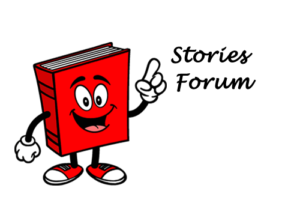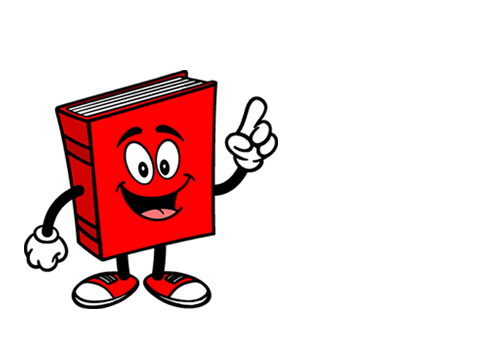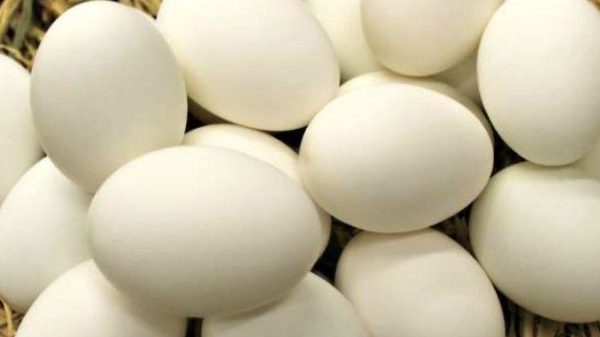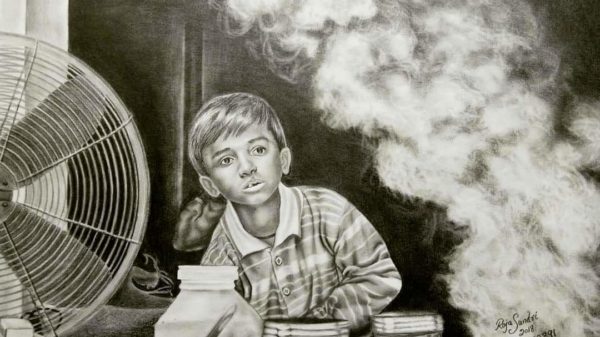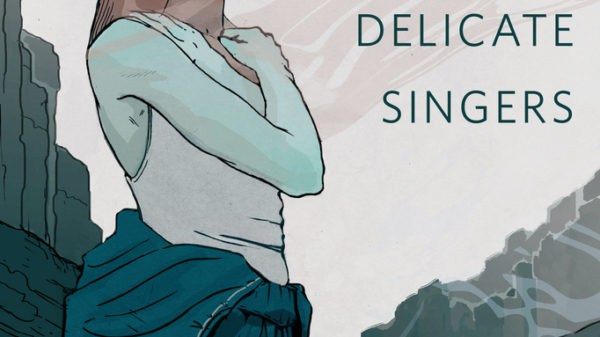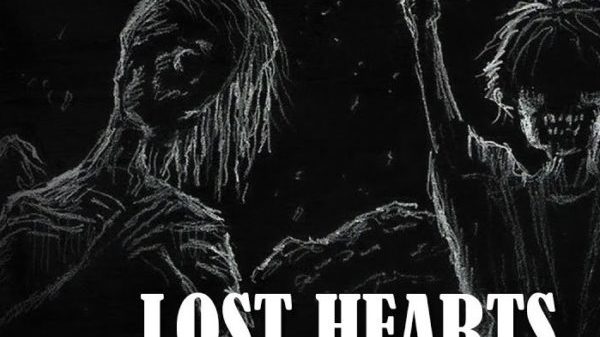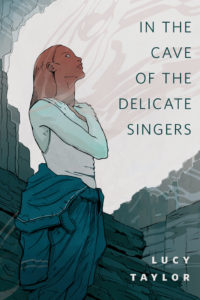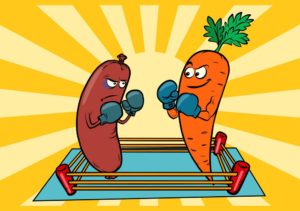Once, I thought I knew something about love.
Once, I could stand on the roof of the tallest skyscraper in the city and look out across the shimmering candyscape of nighttime lights without thinking of what went on down in the black canyons between the buildings: the grand melodramatic murders, the willful and deliberate hurt, the commonplace pettiness. To live is to betray. But why do some have to do it with such pleasure?
Once, I could look in the mirror and see the skin of my throat not withered, the hollows of bone not gone blue and bruised around my eyes.
Once, I could part a woman’s legs and kiss the juncture like I was drinking from the mouth of a river, without seeing the skin of the inner thighs gone veined and livid, without smelling the salt scent and the blood mingled like copper and seawater.
Once, I thought I knew something about love.
Once, I thought I wanted to.
Leah met me in the bar at the Blue Shell. It was six o’clock, just before dinnertime, and my clothes were still streaked with the dill-cream soup and Dijon dressing we had served at lunch. The fresh dill for the soup had come on a truck that morning, in a crate, packed secure between baby carrots and dewy lettuces. I wondered how many highways it had to travel between here and its birthplace, how many miles of open sky before the delivery man lugged it up to the twenty-first floor of the posh hotel. “The Blue Shell on Twenty-one” read the embossed silver matchbooks the busboys placed on every table, referring not to avenue number but to floors above street level. Way up here they kept it air-conditioned, carefully chilled . . . except in the heart of the kitchen, where no amount of circulated air could compete with the radiant heat of a Turbo Ten-Loaf bread oven. In addition to the residue of lunch, I felt sheathed in a layer of dry sweat like a dirty undershirt gone wash-gray with age.
The bar on ground floor was as cool as the rest of the hotel, though, and Leah was cool too. As cool as the coffee cream when I took it out of the refrigerator first thing every morning. For her appointment today she had dressed carefully, in the style affected by all the fashionable girls this year. Leah was one of the few who could get away with it: her calves were tight and slender enough for the clunky shoes and the gaudy, patterned hose, her figure spare enough for the sheath-snug, aggressively colored (or, for a very special occasion, jet black) dresses, the planes of her face sufficiently delicate to sport the modified beehive hairdo, swept up severely in front, but with a few long strands spiraling carefully down the back. “There was a long waiting line,” she told me, toying with the laces of her shoestring bodice. I imagined her sitting in one of the anonymous chairs at the clinic, hugging herself the way she did when she was defensive or less than comfortable—an unconscious gesture, I was sure. My cool Leah would never have chosen to do something that so exquisitely exposed her own vulnerability.
I was supposed to feel guilty. I was supposed to feel neglectful because I hadn’t been able to get anyone to work lunch for me; thus I had sent fragile Leah into a dangerous situation unprotected, into a situation of possible pain without the male stability she craved. Something in me cringed at the accusation, as if on cue. Until now I had only sipped at the boilermaker I’d ordered; now I drank deeply, and was vaguely surprised to see it come away from my lips half-drained. The taste was good, though, the sour tangy beer washing down and the sweet mash of the whiskey lingering. Bushmills. The kitchen staff drank free after getting off a shift, and the bar brands were damn tasty.
“They hurt me,” she said next. “I don’t see why I had to have a pelvic. Jilly didn’t have to have a pelvic when she went to her private doctor. They just tested her pee, and when they called her on the phone later, the nurse already had an appointment set up for her.”
“Jilly’s boyfriend designs software,” I told her. “Jilly can afford to see a private doctor.”
“Yes, but listen.” She spoke excitedly, mouthing her words around the various straws and skewers they’d put in her drink. She drank fruity, frothy stuff, drinks you couldn’t taste the alcohol in, drinks that more properly belonged on a dessert plate with a garnish of whipped cream. A dark red maraschino cherry bobbed against her lips. “Cleve went with me today. He says he’s got some money saved up from his last gallery show. If you help too, I’ll have enough. I can have the operation at a private doctor’s office—the clinic’s going to call and make me an appointment.” Her hand set her drink down on the bar, found mine, tightened over it.
I noticed the way she said operation before I thought of anything else. Casual, with no more pain in the twist of her mouth than if she were saying new dress or boyfriend or fuck. Like something she was used to having, that she couldn’t get used to the idea of not having whenever she wanted it. It wasn’t until my next swallow of whiskey that I registered the name she’d spoken.
“Cleve went with you?”
Again the casual twist of the lips, not quite a smile. “Yes, Cleve went. You couldn’t get off work. I didn’t feel like doing it alone.”
I remembered standing in the kitchen two days ago, slicing a carrot into rounds and then chopping the rounds into quarters. I kept my eyes fixed on the big wooden cutting block, on the knife slicing through the crisp orange meat of the carrot, but in the corner of my vision I could see Cleve twisting his battered old hat in his hands. Between his long fingers, the hat was like an odd scrap of felt. Cleve’s hands were large enough to fit easily around my throat; Cleve stood a head and a half taller than me, and his arms might have been strong enough to throw me half the length of the kitchen. But I knew he would let me kick his ass if I wanted to. If I was hurting so bad that I wanted to pound his head against the floor or punch him in the face until his blood ran, then he was prepared to let me. That was how deep his guilt went. And that was how bad he still wanted Leah.
“I can’t work for you Wednesday,” he’d told me. “Any other day I’d do it, you know that. I’ve got to see this gallery owner, it’s been set up for weeks.”
He wouldn’t meet my eyes. I thought he was just upset at the idea of me having to run the kitchen alone, having to make the thousand little decisions that go with the lunch rush while all the time I worried about Leah . . . imagining her getting off the bus at the last stop before the clinic, having to walk through blocks of the old industrial district. Other parts of the city were more dangerous, but to me the old factories and mills were the most frightening places. The places where abandoned machinery sat silent and brooding, and twenty-foot swaths of cobweb hung from the disused cogs and levers like dusty gray curtains. The places that everyone mostly stayed away from, mostly left alone with the superstitious reverence given all graveyards. But once in a while, something would be found in the basement of a factory, or tucked into the back room of a warehouse. A head, once, so badly decomposed that no one could ever put a face to it. The gnawed bones and dried tendons and other unpalatable parts of a wino, jealously guarded by a pack of feral dogs. This was where the free clinic was; this was where certain doctors set up their offices, and where desperate girls visited them.
And while Leah was making her way through this blasted landscape, while I was slicing goat cheese for the salads or making a delicate lemon sauce to go over the fresh fish of the day, Cleve would be ensconced in some art gallery far uptown. I pictured it like the interior of a temple: lavish brocade and beaded curtains, burning sachets of sandalwood and frankincense, carpet lush and rich enough to silence even the tread of Cleve’s steel-toed cowboy boots. There Cleve would be, kicking back in some cool dim vast room, trying to say the right things about the colorful paintings that came from some secret place in his brain, about the sculptures he shaped into being with the latent grace of his big hands. I liked the idea of Cleve bullshitting some spotless hipper-than-thou gallery owner, someone who attended the right parties to see and be seen, someone who had never been to the old industrial district or any of the rough parts of town except for a quick slummy thrill, someone who never got mustard all over his shirt or scalded his hands in hot dishwater.
But Cleve hadn’t been bullshitting anyone except me.
Leah extricated her hand from mine and adjusted the hem of her skirt over her knee. Her fingernails were painted the cool blue of a blemishless autumn sky; her movements were guarded and deliberate. I caught the glimmer of her frosted eyelids, but in the semidarkness of the bar, I could not see her eyes.
I took a long drink of my boilermaker. Warm rancid beer; the flat taste of whiskey settling spiderlike over my tongue.
One of Cleve’s passions was his collection of jazz and blues records, most of them the original pressings. No digital techno-juju or perfect plastic sound, just the old cardboard sleeves whose liner notes told the stories of entire lives. Just the battered vinyl wheels that could turn back time and rekindle desire, just the dark sorghum voices. Billie and Miles, Duke and Bird . . . and more obscure ones. “Titanic” Phil Alvin, Peg Leg Howell. I had given him a bunch of them, and he knew I loved them too. One night he willed them to me over a case of Dixie beer. (Cleve had made a special trip to New Orleans when the Dixie brewery finally closed, and there were still a few cases stashed in his studio closet; I had helped him drink another five or six.) “Jonny, if I got jumped by a goddamn kid gang on my way home—” he paused to light a Chesterfield “—or if I walked in front of a bus or something, you’d have to take ‘em, man.” He gestured around the room at a series of little jewel-box watercolors he was doing at the time. “My paintings could go their own way—shit, they can take care of themselves. But you have to take the records. You’re the only one who loves ‘em enough.”
The records were Cleve’s sole big indulgence. The rest of his extra money went to buy paints and canvas and an occasional luxury like groceries. He never collected them out of any kind of anal retentiveness, and desire to possess and catalog. It was just the feel of good heavy vinyl in the hands, the fragrant dust that sifted from the corners of the dog-eared cardboard, the music that spun you back to some grand hotel ballroom where you danced beneath a crystal chandelier . . . or some smoky little dive renting space in the basement of a whorehouse. The records were magic rabbit holes that led to the past, to a place where there was still room for romance. And I loved them as much as Cleve did.
And right then, in that moment at the bar as Leah withdrew her hand from mine, I could have taken a hammer and smashed the records all to bits.
We walked the four blocks from the hotel to the train tunnel half-staggering, almost drunk off our one drink apiece. Leah had not eaten because of her appointment; I, after wracking my brain to concoct delicious menus day after day, could hardly eat at all. Forsaking a free dinner at the Blue Shell meant we would go to bed hungry. Our refrigerator at home was empty of all but the last parings of our life together: an old rind of cheese on the shelf, a vegetable or two that neither of us would ever cook withering in the drawer, a flask of vodka I had stashed in the freezer.
As we left the hotel behind, the street grew shabbier. The buildings along here were old row houses of brick and wood, once fashionable, now unrenovated and nearly worthless. Children and teenagers sat on some of the stoops, hardness aging their faces, their grim eyes urging us past. Most unnerving were the houses that stood vacant: I could not imagine what face would look out from the dirty darkness behind the windows. Leah pulled my arm around her. I felt her skin and muscles moving under the thin dress. I thought of that strength moving with me, around me, like snakes wrapped in cool velvet. We had not had sex in three weeks, had not made love in so much longer than that. Whenever I was not with either Cleve or Leah, I imagined them together, drowning in ecstasy, dying their little deaths into each other.
Cleve had told me first, as soon as he realized that Leah didn’t intend to. Away from the kitchen, away from work, in a neutral bar with a fresh beer in front of me, he confessed in a hesitant voice, telling me what a dumbfuck he was and how anyway there was only lust between them, no love, not seeing how that would hurt the worst. He bought me another beer before I finished my first one. Maybe he just wanted to know where both of my hands were.
Leah was in bed but not asleep when I went home. She’d heard me coming up the stairs and fumbling with my key, and rolled over when I came in. Some nights she slept naked; tonight she was wearing something as sheer and weightless as ectoplasm. I saw the line of her shoulder silhouetted in filmy silver-white, somehow more erotic than the curve of her hip or breast. I sat on the edge of the bed.
“I waited up for my story,” she said. It was our custom for me to tell her a tale before we fell asleep at night: sometimes just a shred of hotel gossip or a memory from childhood, sometimes a dream, one of the plans I only told her and Cleve, one of my schemes to get away from the kitchen and into a grander, larger, more leisurely world. These were made of the finest ego-spun gossamer and collapsed in the telling; nonetheless it was pleasurable to tell her, like placing a drop of my heartblood on her lips.
“I’m not telling you a story tonight,” I said. “Tonight it’s your turn.”
She didn’t move then, only looked up at me with her eyes dark in the darkness of the room: she knew I knew. And four weeks later she finally came up with a story to tell me in return for all the ones I’d given her. She was carrying a living, breathing, bloodsucking piece of meat inside her, and it might be Cleve’s meat, and it might be mine.
***
Leah always liked to feel passive when she had sex. No, it wasn’t just that she liked to: she needed to feel passive, needed to feel she was being acted upon. I could kiss her anywhere, manipulate her knees and elbows and the strong curve of her back, pretend she was a department-store mannequin I was posing for some pornographic window display. She would press her face into a pillow and whimper, enjoying the power of pretended helplessness. I could dine on her tangy juices all night if I wished, I could stay inside her as long as I pleased, come when I wanted to. Only when I asked her what she wanted would Leah get angry. She had to be the little girl; she had to have someone take control.
Not on the morning of her operation. I woke in the still, stuffy light of predawn, unsure what had caused me to surface. I thought I had heard a distant sound, something separate from the intermittent cacophony of voices and sirens that punctuated the night. A train whistle miles away, or a telephone ringing in a far-off room.
Then, before I even knew Leah was awake, she sat up and in one liquid movement was straddling me. I had not felt her body close to mine in so long that it startled me into immobility. Even when I pressed up against the urgent sharpness of her nipples, up into the syrupy heat of her crotch, I wasn’t ready.
She tensed above me. In the waxing light I saw surprise on her face, and faint annoyance. She began to grind against me. In the unfamiliar position I could not think how to respond. Leah hardly ever got on top—maybe five or six times in the three years we had been together. It didn’t fit her penchant for being acted upon, and it played up the fact that she was almost as tall as me. She had told me that one of the things she liked best about Cleve was his bigness. His hands could enfold hers as if her hands were baby birds. Her bones felt more delicate when she pressed them against the solid bulk of him.
My overactive imagination served me up plenty of Leah-and-Cleve snapshots, plenty of inevitable intimate moments, generous helpings of feverish speculation. I was helpless to push these out of my mind once they held sway, but that was not the worst thing about them.
The worst thing about them was that occasionally—usually when I was feeling low and tired and ugly—these thoughts would give me a moment of masochistic excitement.
I thought of Leah’s flower-stem spine pressed flush against Cleve. I thought of him kneeling above her, his back covering hers, his big hands cupping the tender weight of her breasts. I knew Cleve preferred to fuck doggy-style. He was a confirmed butt man, loved to ride between those sweet snowy globes. I thought of him just barely entering her, the petals of her opening for him, slicking him with her juice. Cleve had a thick penis, heavily veined and solid-looking; he told me the only time a girl had blatantly propositioned him was once when he had been modeling for an art class.
Imagining it going into Leah, searching out the fruit of her heaven, I began to get hard too.
She grabbed me and then suddenly I was deep inside her. One thrust upward and I felt I was pushing at the heart of her womb. She came the way women do when they only need one good deep touch: quick and hard, with an animal groan instead of the little feathery noises she often made. I thought of the lump of meat that grew inside her, thought of bathing it with my sperm, melting away its rudimentary flesh, melting away the past few months and their caustic veneer of pain. Then I did come. The sperm didn’t reach far enough: it pulsed out in long, aching spasms that flowed back down over us, into the sticky space between our thighs. The months of pain did not melt away. The lump of meat remained—it would have to be scraped away, not drowned in the seed of sorrow.
As she was pulling away from me, the telephone did ring. The noise jarred something in me, a faint, grating edge of déjà vu: I wondered again what had woken me. Leah hunched over the receiver. “Yes,” she said. “Wait—let me get something—” She grabbed a pen from the bedside table, a glossy magazine from the clutter on the floor. Her breasts hung ripe as eggs when she leaned over. She scratched something on the cover of the magazine. I rolled my head sideways on the pillow and looked. 217 Payne Street, she had written—the doctor’s address, which the clinic wouldn’t divulge until the morning of the abortion. An address in the disused industrial district of the city.
“Thank you,” said Leah, “yes . . . thank you.” Gently she placed the receiver back in its cradle. The weak light was growing brighter behind the dirty curtains. Leah got out of bed and hurried to the bathroom. I was still lying there when she came out thirty minutes later. She did not look at me. She pulled fishnet stockings the color of smoke up over her long smooth thighs, fastened a wisp of a garter belt around her waist, zipped up a sleeveless, black-lace shift. Then she sat on the edge of the bed and cried.
I held her hand and touched her face with all the tenderness I could summon. Her mascara did not run—some new waterproof kind, I supposed. Her lipstick was perfect. I tried to comfort her, and all I could see in my mind was Leah lying back on a stainless steel operating table, some black-rubber vacuum-tube apparatus snaking up into her. Her labia were stretched wide as a screaming mouth and she was wearing nothing but the lacy garter belt and the fishnet stockings.
It was an image Cleve would have appreciated.
“Yes, Jonny, I know you try to be sweet to me. You’re a saint, Jonny. But you know what you have? Only that damned little-boy sweetness. You can’t take care of me. You could cook me a million gourmet dinners and when I finished them I’d still be lonely. Cleve has a special kind of sweetness—”
“I know, I know. Cleve’s sweet the way a dumb dog is sweet. You like ‘em big and stupid, right?” When I was with Cleve I could not hate him. Only my arguments with Leah could convince me that Cleve had ever meant me any harm, and only then could I say cruel things about him. We had started arguing on the way to the doctor’s office. Walking through the abandoned factory district made me tense—the landscape was falling to waste, long stretches of broken glass gleaming dully here and there like quicksilver sketched onto a monochromatic gray photograph. The silence in the empty, shabby streets seemed deafening. Leah mistook my own silence for indifference: I wasn’t listening to her gloomy prattle, wasn’t even thinking of the ordeal about to happen to her.
The buildings here loomed low and oppressive, blotting out the sun. Years ago this place had been a toxic hell of factories and mills. We passed smokestacks blackened halfway down their towering stalks with soot and char. We passed burned-out lots that made me think of cremation grounds. The smell of death was here too—the odor of burning crude oil is somehow as humanly filthy as the odor of corrupted flesh. These places had been abandoned over the past twenty or thirty years, as the heart of the city’s industry gradually moved north to the silicon suburbs. Out there you could live your whole life shuttling between a superhighway, an exit sign, a gleaming building made of immaculate silver glass, a house and a yard and a wide-screen TV and the superhighway again.
More frightening to me than the empty lots, more oppressive than the huge corrugated-steel Dumpsters that overflowed with thirty years’ forgotten trash, were the dead husks of the buildings. Some of them went on for blocks and blocks, and I could not help but imagine what it would be like to walk through them—endless mazes of broken glass and spiderweb and soft sifting ash, with the corners laved in shadow, with the pipes and beams zigzagging crazily overhead. I thought of a poem I had written once for some long-ago college class, in some idealistic day when the city was far away and I only cooked the food I wanted to eat. A few lines came back to me: When the emptiness in you grows too large/You fill its vaulted chamber with the ash of memory/ With the dust of desire.
“I don’t want to fight,” Leah said suddenly. “There’s not enough time, it’s too soon. Hold me, Jonny. Help me—” She pressed me back against a wall and covered my mouth with hers. Her lips were lush, her tongue was moist and searching, and again I was reminded of loving her. Not the sterile and functional fuck this morning, but the real love we had once shared: the soft friction of skin, the good long thrusts, the liquid sounds of pleasure. But these memories were receding rapidly. Soon they would be just a point of brightness on a dark horizon, and I knew now that they could never return. As I kissed Leah I became conscious of the rough bricks at my back, of the vast empty space behind me. I grasped her shoulders and gently pushed her away. “Come on,” I said. “You can’t be late. What are we looking for—Payne Street?”
She nodded, didn’t speak. We kept walking. In all the blocks since we’d gotten off the train, we had only seen two or three other people: sad silent cases who walked with their heads down, who looked like they might vanish from existence as soon as they turned the corner. Now it seemed we were alone. The streets grew ever shabbier and emptier; a few of them had signs whose letters were half-obliterated, spelling out cryptic messages, pointing to nowhere. None of them looked like they might have ever said Payne Street. At one corner, a long spray of dirt lay across the sidewalk. Leah could not quite step all the way over it, and when we were past I saw a dark crumb stuck to the heel of her shoe. The delicate tired lines around her mouth and eyes seemed etched in dust. I began to feel that the landscape was encroaching upon her; she would leave here forever marked.
If it could erase the mark of Cleve from her, or rather the mark of her love for Cleve, then I would bless this blasted landscape. Maybe then I could love her again.
I thought I wanted to.
Soon, it was obvious that we were getting to the fringes of the industrial section. The buildings here were more cramped and ramshackle. If anything walked here, it would be the wraith of a drudge worked to death in the sweatshops, dead of blood poisoning from a needle run through her finger. Or perhaps a tattered ghost, a hungry soul mangled by machinery from a time that knew no safety regulations.
The sidewalk was fissured with deep cracks and broken into shards, as if someone had gone at it with a sledgehammer. I saw weeds sprouting at the edges of the vacant lots, leaves barely tinged with green, as furtive and sunless as mushrooms. “You think the doctor’s office burned down?” I said.
The look from beneath Leah’s eyelashes was pure sparkling hate. Leah disliked getting around the city, and when she had to find a place by herself, she got panicky and sometimes mean. “He said we should come out of the tunnel and turn left. It was supposed to be three blocks down past the cotton factory.”
“They had cotton mills, Leah, not factories, and any one of those buildings we passed could have been the one you want. By the time we walk all the way back there, we’ll be a half hour late.” A little flame of rage snapped in my chest. If she didn’t have her directions straight, and if we arrived too late, we could miss the appointment. Appointments with a private doctor who would perform this particular operation were difficult to get, so difficult that if Leah missed this chance, she might be too far along by the time she could get another.
Without a word, she wheeled and started walking back the way we had come. I had to hurry to keep up with her; despite my anger, there was still the old reflexive fear that she might twist her ankle in one of the cracks or break into a run and escape from me or fall into a giant hole that would open like a mouth in the ground beneath her feet. You hold onto what you have; you do not give it up easily, even when you know it is poisoning you.
We walked quickly for a long time. Leah was sure we had turned at a certain corner; I didn’t remember, and we argued over that. Somehow she managed to bring Cleve’s name into it. “If you were with Cleve,” I said furiously, “you wouldn’t be bitching at him. You’d be all contrite and saying how stupid you were to get lost. You’d whine until you tricked him into taking care of you.”
Leah spun on her heel. “Well, Cleve isn’t here, is he? He had to hang his stupid gallery show today—he couldn’t come! I’m stuck with you!”
“He was never going to go. He said you and I should go alone—said maybe that would help you decide. Make you quit stringing me along, I guess he meant.”
“Yes, that was what he said he told you. But Jonny, I was going to meet him this morning. I was going to tell you I wanted to go by myself, that I’d decided I had to do it alone. Then I was going to meet Cleve at the train station. But when I called him this morning, the bastard backed out. He decided to spend the day playing with his damned pictures.”
Only the fact that I was still somehow pitifully, stupidly in love with Leah allowed me to do what I did then. I turned and ran from her. If I had stayed I could not have kept my fingers from round her throat; in my head I would have been choking her and Cleve at once. Never mind the total illogic of it; never mind that both Leah and Cleve knew I would never have let her go off alone; never mind that I did not really believe Cleve would betray me so completely, not even for Leah, not even though I knew he was pitifully in love with her too. Something had woken me up this morning at the first pale light of dawn; it could have been a cry down in the street, or a jet plane arrowing through the smog far overhead. Or it could have been Leah murmuring into the phone, cursing her conspirator in a whisper when she realized he wasn’t coming. Then replacing the receiver ever so gently—wanting to slam it down—and flowing over on top of me. Making love to me to spite Cleve, even if only in her head.
I had the spreading cancer of jealousy in me; it had been eating away inside me for a long time. Now at last I thought I was in its death throes, suffering its final agony. And, like any dying man, I tried to run from it.
We had already lost the way we had come by. Now I ran deeper into the maze of streets, not looking or caring which way I went. For a few moments I sprinted, desperate to get away, wanting nothing but to run and run. Then the sound of Leah’s heels ticking frantically behind me began to slow me down, began to pull me back to here and now and what I thought I wanted. I walked fast, jogging when she got too close, not letting her catch up with me but not completely losing her. I was afraid I might never find her again; I was afraid of having nothing to crawl back to.
Then I turned a corner and didn’t look over my shoulder soon enough. When I did glance back, Leah was gone.
I froze. How could I have lost her, not meaning to? I waited a few seconds to see if she might follow. If I ran back around the corner and she was still coming, my game would be up—it would be as good as admitting that I hadn’t wanted to run away at all. But if she’d gotten disgusted and started back to the train station, I had to catch her. I had to get her to that appointment if I still could. If she needed dragging there, I would drag her.
I came around the corner and the sidewalk was empty. For a moment I vacillated between anger and the stark terror of abandonment. But farther up the street, at the mouth of a narrow alleyway, I saw a smudge on the sidewalk—darker than the drifting ash, and shiny. I walked back to it. The smudge on the sidewalk was blood, twin patches of it ground into the cement. A few feet away, half-hidden beneath a blackened flake of newspaper, lay a tube of scarlet lipstick.
Leah had tripped over her heels, fallen, spilled her purse, skinned her knees brutally on the broken sidewalk. But where had she gone after that?
I looked down the alleyway. No one there. Nothing—
—except a sign.
I hadn’t seen it at first. No one walking quickly past would have noticed it; it had been placed only three or four feet up the wall, at waist level instead of eye level. And it was so faded, the edges of the letters seeming to blend into the dusty brick, that it could hardly be read. But I imagined Leah sitting up after her fall, her smoky fishnets torn and the raw ganglia of her kneecaps screaming, her eyes filling with tears. She would have sat there for a moment, dazed, not quite able to get up. And the sign might have caught her eye.
Pain Street, it said.
The alleyway led between two empty factory buildings.
Suddenly the sky seemed too wide and bright and heavy, the silence too big. A fragment of sidewalk shifted under my foot. I saw little drifts of refuse piled against either wall of the alley—soot and ash, more bits of charred paper, the razor confetti of broken glass. I did not know if I could set foot in the alley; I did know, however, that I could not go home alone.
One wall was blank and featureless all the way to the back of the alley, where more trash was heaped. At my approach, a bottle rolled lazily down but did not shatter. I thought I had walked into a cul-de-sac until I came to the end of the alley. There, set back in an alcove of crumbling mortar, was a heavy steel door wedged open with half a brick.
Someone had taken a nail or a shard of glass and scratched the number 217 on the door.
The door made a gritty ratcheting noise as I pulled it open, but there was no trash in front of it, and the hinges swung easily. Someone had opened it before me. I paused for a moment, drinking in what little dirty sunlight managed to filter into the alley. Then I stepped inside. It was easy. Leah always led me to the places I feared most, and I always followed.
The air inside the building was as cool and dim and stagnant as the air in a sarcophagus. In the dark rafters and pipes of the ceiling it hung like a cloud of bats waiting to fly, rustling their parchment wings, exuding their arid spice smell.
The ash of memory, I thought dreamily, the dust of desire. Walking in this air was like moving through a syrup of fermented ages; the silence in here could wrap you up like cloth and preserve you for a thousand years. As my eyes adjusted to the light, shapes began to resolve themselves around me: a huge mesh of Gigeresque machinery, cogs hanging in the air like dull toothy moons, rubber belts and hoses gone brittle with dust, steel spires soaring up to the apex of the great vaulted chamber. And a row of hooks as long as my leg, sharp metal hooks that looked oddly organic, as if they should be attached to the wrist-stump of some enormous amputee.
I walked a few steps into the chamber, and my foot punched through something dry and papery. A giant vegetable bulb, I thought, like an onion or a shallot kept too long in a root cellar, rotten and desiccated from the inside. Not until I pulled my foot back did the fragile rib cage crumble, collapsing the swollen shell of the belly and exposing the scrimshaw beadwork of the spine.
A younger woman than Leah, almost a child, half-buried and half-dissolved into the grime and ash of the factory floor. Most of the face was gone. I saw scattered teeth gleaming in the dust like fragments of ivory. But the curve of the cheekbone—the tiny hand—surely she could not yet have been sixteen. And I wondered why she had come at all, with the once-ripe swell of her belly; she had been too far along in her pregnancy to have hoped to live through an abortion.
I could go no further. I could not walk that gauntlet of machinery, not even to find Leah. I could not turn my back on it either. I stood over the husk of the young girl, and the machinery stretched out mutely as far as I could see, and time hung motionless inside the old factory, not disturbed by me or Leah or anything in the city. It seemed impossible that just a few miles away the trains were still running, the drugs were still changing hands, the endless frantic party went on as if time could not be stopped.
Very nearby, magnified by furtive echoes, I heard the click of a high heel.
“Leah,” I called, not knowing if I hoped to save her or if I wanted her to save me. “Leeeeah . . .” When she walked into the far end of the chamber, I could no longer be ashamed of the pleading note in my voice. Her face was smeared with tears and makeup. The blood from her scraped knees had begun to cake, gluing her torn stockings to her legs. Her face twisted with relief and she started toward me, her arms out as if in supplication. In that moment Cleve might never have touched her, never have tasted her. We might have gone home together, might have slept in each other’s arms again. I might have rested my cheek on the burgeoning mound of her belly, and found peace.
Then the machinery kicked on.
It had not been used in a long time, long enough to let the young girl fall away nearly to bare bones, and it filled the air with dust as thick as whipped cream.
Only dimly did I see the first hook lifting Leah up and away from me, as if she had raised her arms and flown. I stood there dumbly for several minutes, unable to grasp what had happened even as her blood fell upon my face and my out‑stretched hands. A high-heeled shoe dropped to the floor in front of me, missing my head by an inch. I did not move. I stared up, up at the swirling clouds of dust, up at the figure that hung suspended like an angel in black lace. When the dust cleared, Leah was slumped over limp, her head hanging upside down, her hair like a bright banner in the dusk of the room. The hook had punched into her back and out through the soft flesh of her abdomen, but her face was perfectly calm. I was calm, too, an absolute calm like the equilibrium of particles in a solution. Should I have been frightened? Perhaps. But somehow I knew that even if I walked up to one of the machines and touched it, I would not be hurt. They did not want me.
The metal of the hook was beaded with bright blood. On its sharp tip was a thick gobbet, darker than the rest and more solid-looking. It looked like nothing but a piece of meat—meat that had ceased to live or breathe or suck.
I no longer thought I knew something about love.
Now I knew what love was all about.
I have described the scene to Cleve as well as I could, and asked him to paint it for me. When he has captured it as closely as possible in the jeweled watercolor tones that he loves—the soft gray dust, the banner of her hair, the red so clear and vital it hurts the eye to see it—he will mat and frame it and we will hang it on the wall.
Cleve’s work has become somewhat fashionable among the gallery crowd, and he has begun getting shows uptown, where the art patrons don’t think they’ve gotten their money’s worth unless they pay upwards of five hundred for a piece. We have both cut back to half time at the Blue Shell. Whenever we have a night off, we try to work our way through the last of the Dixie beer, and we listen to Sarah Vaughan or Mingus or Robert Johnson, and when the music ends we sit and stare at each other, and a thousand secrets pass between our eyes.
I hate to look in the mirror. I hate to see the beginnings of an old man’s face. I hate the loose skin of my throat and the hollows around my eyes. But I know what Leah’s eyes must look like by now.
Sometimes we talk about magic.
In a city of millions, an ancient city overcrowded and mean enough, a kind of magic could evolve.
Ancient by American standards isn’t very old. Two or three hundred years at most . . . and the abandoned mills and factories are no more than sixty years old. But I think of New Orleans, that city mired in time, where a whole religion evolved in less than two hundred years—a slapdash recipe concocted of one part Haitian graveyard dust, one part juju from the African bush, a jigger of holy Communion wine, and a dash of swamp miasma. Magic happens when and where it wants to.
In a great, cruel, teeming city, one could create one’s own magic . . . intentionally or otherwise. Magic to fulfill desires that should remain buried in the deepest pit of the soul, or just to get through the desperate hustle of staying alive from day to day. And out of the desperation, out of the hunger for bread or love, out of the secret hard bright joy at the madness of it all—out of these things something else could be born. Something made of bad dreams and lost love, something that would use as its agent the abandoned, the forgotten, the all-but-useless.
The obsolete engines, the rusted cogs . . . and the steel hooks that stay honed sharp and shiny. The machinery of a forsaken time.
The love that no one wanted anymore.
I go up to the roof of Cleve’s building and I look out over the city, and I think about all the power waiting to emerge from its black womb, and I wonder who else will tap into this homegrown magic, and I howl into the wind and rejoice at the emptiness within me.
And nowhere else on the horizon have I ever seen so many billions of lights . . . or so many patches of darkness.
